Books by Date
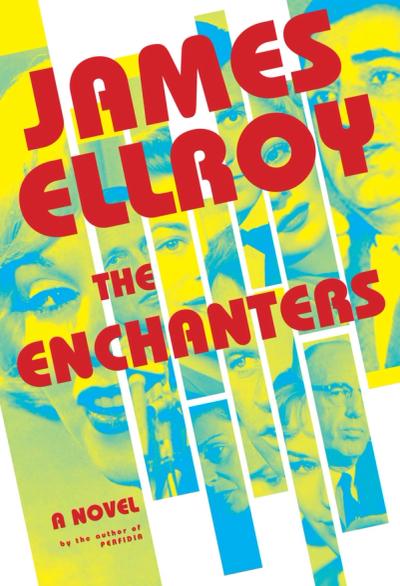
James Ellroy—Demon Dog of American Letters—goes straight to the tragic heart of 1962 Hollywood with a wild riff on the Marilyn Monroe death myth in an astonishing, behind-the-headlines crime epic.
Los Angeles, August 4, 1962. The city broils through a midsummer heat wave. Marilyn Monroe ODs. A B-movie starlet is kidnapped. The overhyped LAPD overreacts. Chief Bill Parker’s looking for some getback. The Monroe deal looks like a moneymaker. He calls in Freddy Otash.
The freewheeling Freddy O: tainted ex-cop, defrocked private eye, dope fiend, and freelance extortionist. A man who lives by the maxim “Opportunity is love.” Freddy gets to work. He dimly perceives Marilyn Monroe’s death and the kidnapped starlet to be a poisonous riddle that only he has the guts and the brains to untangle. We are with him as he tears through all those who block his path to the truth. We are with him as he penetrates the faux-sunshine of Jack and Bobby Kennedy and the shuck of Camelot. We are with him as he falters, and grasps for love beyond opportunity. We are with him as he tracks Marilyn Monroe’s horrific last charade through a nightmare L.A. that he served to create — and as he confronts his complicity and his own raging madness.
It’s the Summer of ’62, baby. Freddy O’s got a hot date with history. The savage Sixties are ready to pop. It’s just a shot away.
The Enchanters is a transcendent work of American popular fiction. It is James Ellroy at his most crazed, brilliant, provocative, profanely hilarious, and stop-your-heart tender. It is a luminous psychological drama and an unparalleled thrill ride. It is, resoundingly, the great American crime novel.
Widespread Panic
“Widespread Panic unfolds in shimmering Ellroyvision.
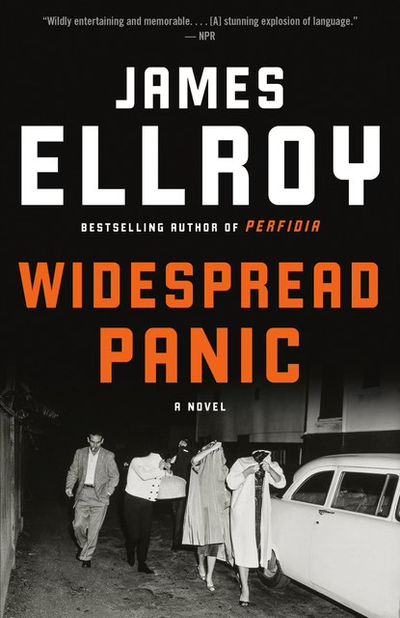
Freddy Otash was the man in the know and the man to know in ’50s L.A. He was a rogue cop, a sleazoid private eye, a shakedown artist, a pimp – and, most notably, the head strong-arm goon for Confidential magazine.
Confidential presaged the idiot internet – and delivered the dirt, the dish, the insidious ink, and the scurrilous skank. It mauled misanthropic movie stars, sex-soiled socialites, and putzo politicians. Mattress Jack Kennedy, James Dean, Montgomery Clift, Burt Lancaster, Liz Taylor, Rock Hudson – Frantic Freddy outed them all. He was the Tattle Tyrant who held Hollywood hostage, and now he’s here to CONFESS.
“I’m consumed with candor and wracked with recollection. I’m revitalized and resurgent. My meshugenah march down memory lane begins NOW.”
In Freddy’s viciously entertaining voice, Widespread Panic torches 1950s Hollywood to the ground. It’s a blazing revelation of coruscating corruption, of pervasive paranoia, and of sin and redemption with nothing in between.
Here is James Ellroy in savage quintessence. Freddy Otash confesses – and you are here to read and succumb.
See all reviewsEveryman's Library
The L.A. Quartet
The Black Dahlia, The Big Nowhere, L.A. Confidential, White Jazz
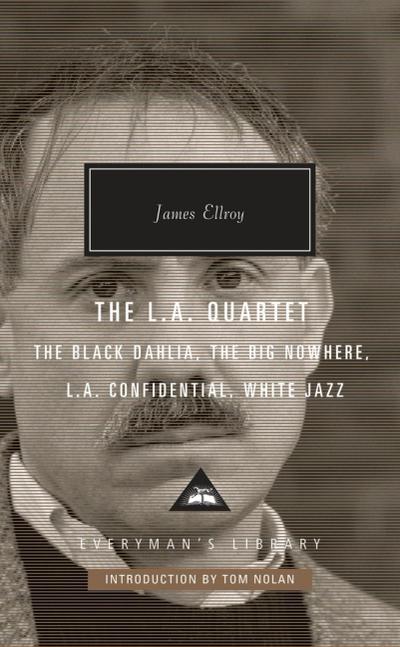
Everyman’s Library Contemporary Classics Series
The Black Dahlia depicts the secret infrastructure of L.A.’s most sensational murder case. A young cop morphs into obsessed lover and lust-crazed avenger. The Dahlia claims him. She is the deus ex machina of a boomtown in extremis. The cop’s rogue investigation is a one-way ticket to hell.
The Big Nowhere blends the crime novel and the political novel. It is winter, 1950–and the L.A. County Grand Jury is out to slam movieland Reds. It’s a reverential shuck–and the three cops assigned to the job are out to grab all the glory they can. A series of brutal sex killings intervenes, and the job goes all-the-way bad.
L.A. Confidential is the great novel of Los Angeles in the 1950s. Political corruption. Scandal-rag journalism. Bad racial juju and gangland wars. Six local stiffs slaughtered in an all-night hash house. The glorious and overreaching LAPD on an unprecedented scale.
White Jazz gives us the tortured confession of a corrupt cop going down for the count. He’s a slumlord, a killer, a parasitic exploiter. He’s a pawn in a series of police power plays and starting to see that he’s being had. He’s just met a woman. Thus, he’s determined to claw his way out of the horrifying world he’s created–and he’s determined to tell us everything.
The L.A. Quartet is a groundbreaking work of American popular fiction.
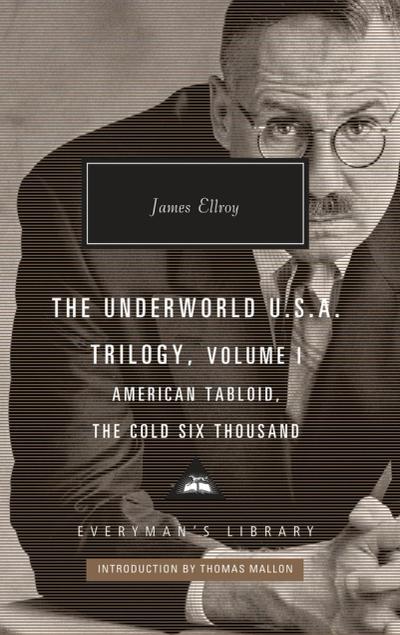
American Tabloid gives us Jack Kennedy’s ride, seen from an insider’s perspective. We’re there for the rigged 1960 election. We’re there for the Bay of Pigs fiasco. We’re the eyes and ears and souls of three rogue cops who’ve signed on for the ride and come to see Jack as their betrayer. We’re Jack’s pimps and hatchet men, and we’re there for that baroque slaying in Dallas.
The Cold Six Thousand takes us from Dallas to Vietnam to Memphis to the kitchen of the Ambassador Hotel in L.A. We’re rubbing shoulders with RFK and MLK, calamitous klansmen, noted mafiosi. We’re forced to relive the American sixties–and we come away breathless.
The first two books of the Underworld U.S.A. Trilogy revisit the most anarchic decade in our history. They are defined by their brutal linguistic flair and reckless panache.
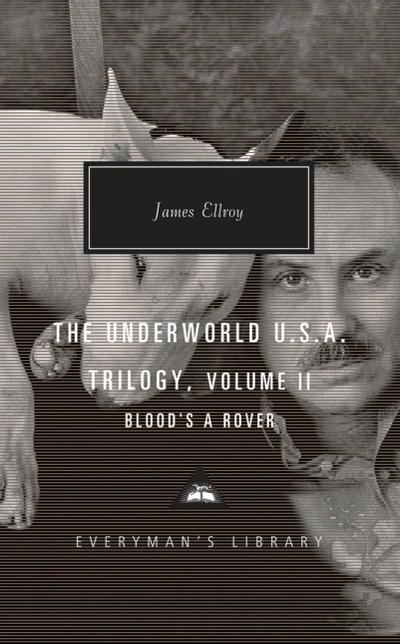
Blood’s A Rover takes us into the seventies. MLK and RFK are dead. The Democratic National Convention in Chicago has spawned chaos. There’s a punk-kid private eye in L.A. He’s clashing with a mob goon and an enforcer for J. Edgar Hoover. There’s an armored-car heist and a cache of missing emeralds. There’s bad voodoo in the Dominican Republic and Haiti. Amidst it all is a revolutionary, Joan Rosen Klein. The kid P.I., the mob goon, and Hoover’s enforcer love her unto death. Blood’s A Rover gives us the private nightmare of public policy on an epic scale.
The Second L.A. Quartet
This Storm
A Novel
“Stunning…Just when it seems that things couldn’t get darker, Ellroy peels back a deeper level of corruption. This obsessive, wholly satisfying probing of 20th-century American history deserves a wide readership.
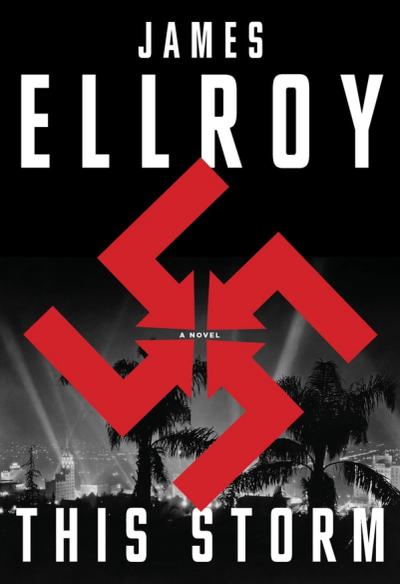
New Year’s Eve 1941, war has been declared and the Japanese internment is in full swing. Los Angeles is gripped by war fever and racial hatred. Sergeant Dudley Smith of the Los Angeles Police Department is now U.S. Army Captain Smith and a budding war profiteer. He’s shacked up with Claire De Haven in Baja, Mexico, and spends his time sniffing out Fifth Column elements and hunting down a missing Japanese naval attaché. Hideo Ashida is cashing LAPD paychecks and working in the crime lab, but he knows he can’t avoid internment forever. Newly arrived U.S. Navy Lieutenant Joan Conville winds up in jail accused of vehicular homicide, but Captain William H. Parker squashes the charges and puts her on Ashida’s team. Elmer Jackson, who is assigned to the alien squad and to bodyguard Ashida, begins to develop an obsession with Kay Lake, the unconsummated object of Captain Parker’s desire.
Now, Conville and Ashida become obsessed with finding the identity of a body discovered in a mudslide. It’s a murder victim linked to an unsolved gold heist from ‘31, and they want the gold. And things really heat up when two detectives are found murdered in a notorious dope fiend hang-out.
See all reviewsJournalism & Short Fiction
LAPD '53
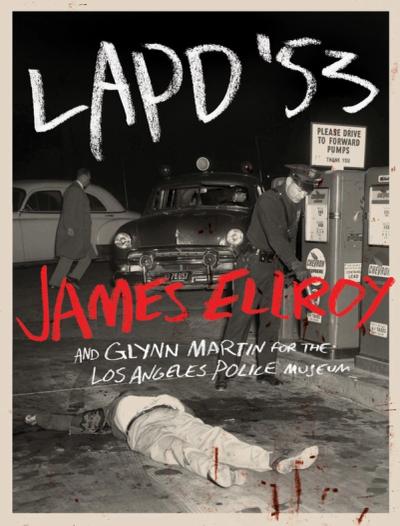
James Ellroy, the undisputed master of crime writing, has teamed up with the Los Angeles Police Museum to present a stunning text on 1953 L.A. While combing the museum’s photo archives, Ellroy discovered that the year featured a wide array of stark and unusual imagery—and he has written 25,000 words that illuminate the crimes and law enforcement of the era. Ellroy offers context, and layers on wild and rich atmosphere—this is the cauldron that was police work in the city of the tarnished angels more than six decades ago. More than 80 duotone photos are spread throughout the book in the manner of hard-edged police evidence.
Illustrations: 85 duotone photographs; published by Abrams.
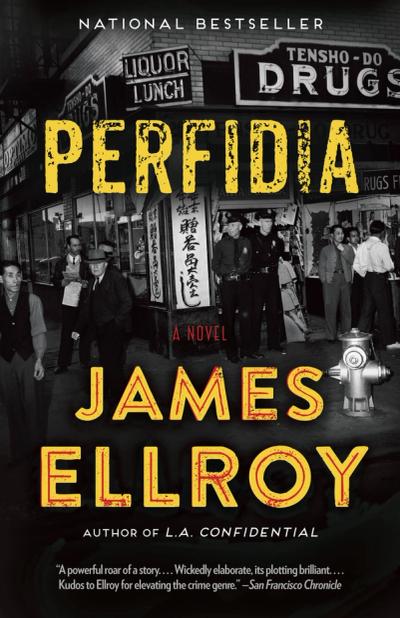
The hellish murder of a Japanese family summons three men and one woman. William H. Parker is a captain on the Los Angeles Police Department. He’s superbly gifted, corrosively ambitious, liquored-up, and consumed by dubious ideology. He is bitterly at odds with Sergeant Dudley Smith—Irish émigré, ex-IRA killer, fledgling war profiteer. Hideo Ashida is a police chemist and the only Japanese on the L.A. cop payroll. Kay Lake is a twenty-one-year-old dilettante looking for adventure. The investigation throws them together and rips them apart. The crime becomes a political storm center that brilliantly illuminates these four driven souls—comrades, rivals, lovers, history’s pawns.
Perfidia is a novel of astonishments. It is World War II as you have never seen it, and Los Angeles as James Ellroy has never written it before. Here, he gives us the party at the edge of the abyss and the precipice of America’s ascendance. Perfidia is that moment, spellbindingly captured. It beckons us to solve a great crime that, in its turn, explicates the crime of war itself. It is a great American novel.
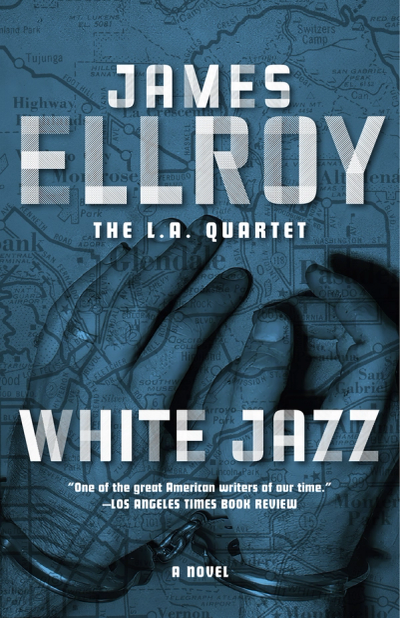
Klein’s hung out as bait, “a bad cop to draw the heat,” and the heat’s coming from all sides: from local politicians, from LAPD brass, from racketeers and drug kingpins—all of them hell-bent on keeping their own secrets hidden. For Klein, “forty-two and going on dead,” it’s dues time.
Klein tells his own story—his voice clipped, sharp, often as brutal as the events he’s describing—taking us with him on a journey through a world shaped by monstrous ambition, avarice, and perversion. It’s a world he created, but now he’ll do anything to get out of it alive.
Fierce, riveting, and honed to a razor edge, White Jazz is crime fiction at its most shattering.
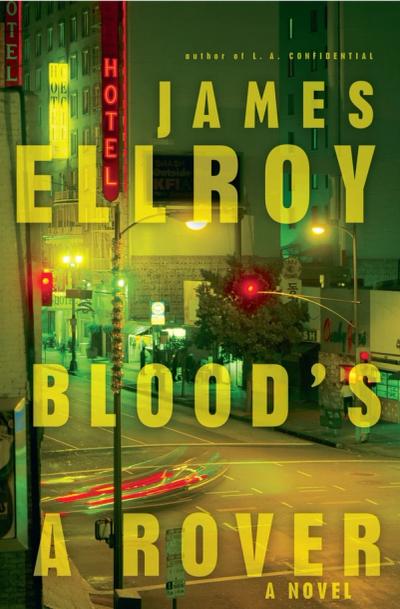
Martin Luther King assassinated. Robert Kennedy assassinated. Los Angeles, 1968. Conspiracy theories are taking hold. On the horizon looms the Democratic Convention in Chicago, and constant gun fire peppers south L.A. Violence, greed, and grime are replacing free love, and everybody from Howard Hughes, Richard Nixon and J. Edgar Hoover to right-wing assassins and left-wing revolutionaries is getting dirty. At the center of it all is a triumvirate: the president’s strong-arm goon, an ex-cop and heroin runner, and a private eye whose quarry is so dangerous she could set off the whole powder keg. With his trademark deadly staccato prose, James Ellroy holds nothing back in this wild, startling and much-anticipated conclusion to his Underworld U.S.A. trilogy.
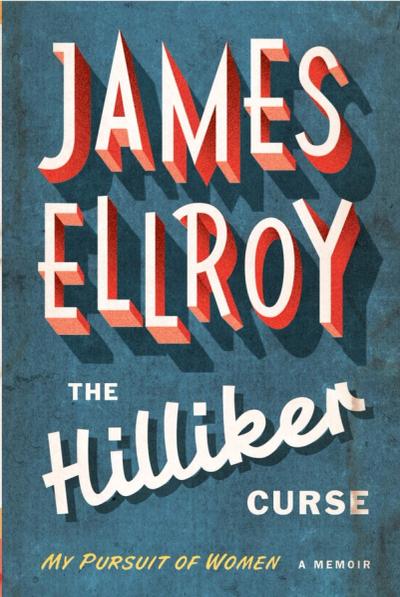
The Hilliker Curse is a predator’s confession, a treatise on guilt and on the power of malediction, and above all, a cri de cœur. James Ellroy unsparingly describes his shattered childhood, his delinquent teens, his writing life, his love affairs and marriages, his nervous breakdown, and the beginning of a relationship with a woman who may just be the long-sought Her.
A layered narrative of time and place, emotion and insight, sexuality and spiritual quest, The Hilliker Curse is a brilliant, soul-baring revelation of self. It is unlike any memoir you have ever read.
Short Stories
Hollywood Nocturnes
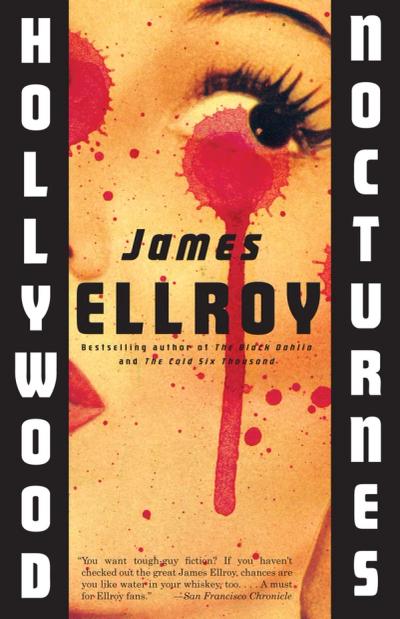
An ex-con raging on revenge in High Darktown becomes a cop’s worst nightmare. While chasing kidnappers, two cops stumble on an Okie town as bloody as the O.K. Corral. A strongarm for Howard Hughes and mobster Mickey Cohen finds himself playing both ends against the middle, all for a murderously magnificent moll. This is L.A., Ellroy-style—corrupt cops, goons with guns, rattling roadsters—and all in the staccato rhythm of the streets. Hollywood Nocturnes, a novella and five short stories, shows us the seedy side of glamorous Hollywood, laid out like a corpse in the morgue.
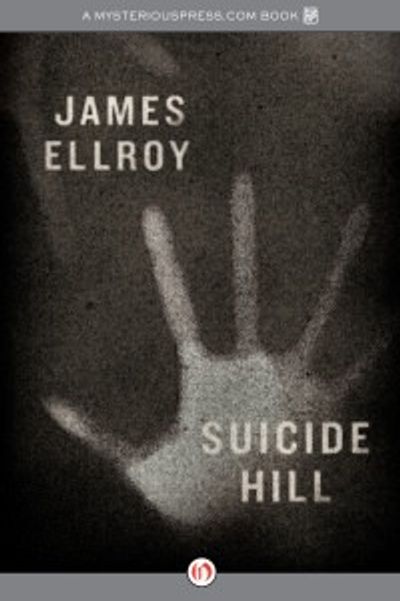
In his obsessive mission to protect the innocent, there is no line he won’t cross. Estranged from his wife and daughters and on the verge of being fired for his transgressions, Hopkins is assigned to investigate a series of bloody bank robberies. As the violence escalates and the case becomes ever more vicious, Hopkins will be forced to cross the line once again to stop a maniac on a murder binge.
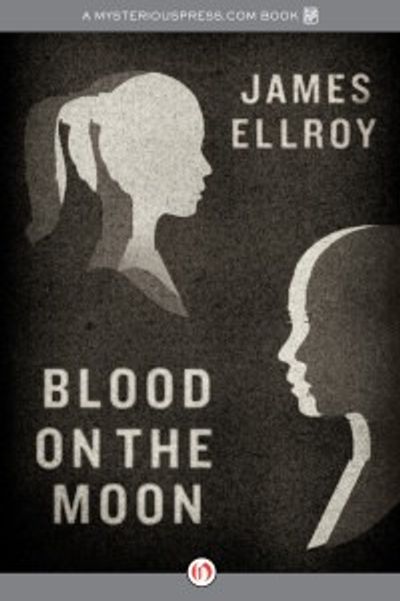
He’s a thinking-man’s cop with a dark past and an obsessive drive to hunt down monsters who prey on the innocent.
Now there’s something haunting him. He sees a connection in a series of increasingly gruesome murders committed over a period of twenty years. To solve the case, Hopkins will ditch all the rules and risk his career to make the final link and get the killer.
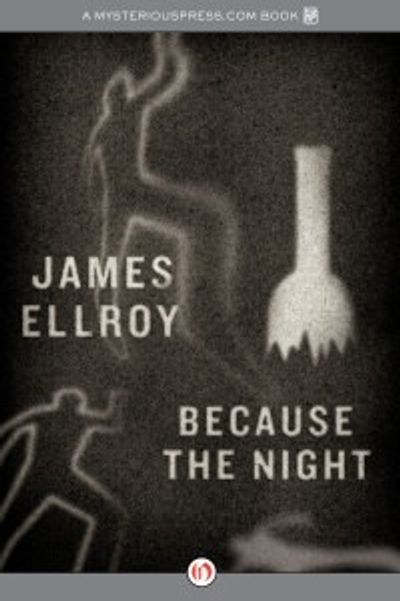
A hero cop is missing. A botched liquor-store heist leaves three grisly dead. Nobody could see a pattern in these two pieces of information–no one except Detective Sergeant Lloyd Hopkins, a brilliant and disturbed L.A. cop with an obsessive desire to protect the innocent. To him they lead to one horrifying conclusion—a killer is on the loose and preying on his city. From the master of L.A. noir comes this beautiful and brutal tale of a cop and a criminal squared off in a life-and-death struggle.
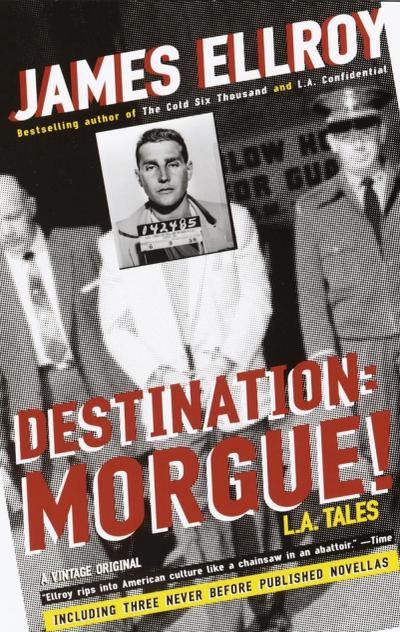
A new book of scenes from America’s capital of kink: Los Angeles. Fourteen pieces, some fiction, some nonfiction, all true enough to be admissible as state’s evidence, and half of it in print for the first time. And every one of them bearing the James Ellroy brand of mayhem, machismo, and hollow-nose prose.
Here are Mexican featherweights and unsolved-murder vics, crooked cops and a very clean D.A. Here is a profile of Hollywood’s latest celebrity perp-walker, Robert Blake, and three new novellas featuring a demented detective with an obsession with a Hollywood actress. And, oh yes, just maybe the last appearance of Hush-Hush sleaze-monger Danny Getchell. Here’s Ellroy himself, shining a 500-watt Mag light into all the dark places of his life and imagination. Destination: Morgue! puts the reader’s attention in a hammerlock and refuses to let go.
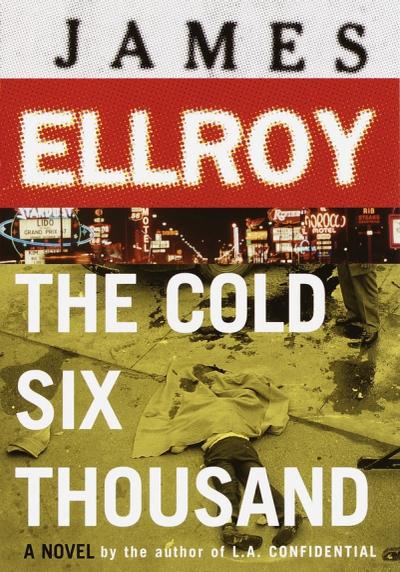
On November 22, 1963 three men converge in Dallas. Their job: to clean up the JFK hit’s loose ends and inconvenient witnesses. They are Wayne Tedrow Jr., a Las Vegas cop with family ties to the lunatic right; Ward J. Littell, a defrocked FBI man turned underworld mouthpiece; and Pete Bondurant, a doperunner and hitman who serves as the Mob’s emissary to the anti-Castro underground.
It goes bad from there. For the next five years these night-riders run a whirlwind of plots and counter-plots: Howard Hughes’s takeover of Vegas, J. Edgar Hoover’s war against the civil rights movement, the heroin trade in Vietnam, and the murders of Martin Luther King Jr. and Bobby Kennedy. Wilder than L. A. Confidential, more devastating than American Tabloid, The Cold Six Thousand establishes Ellroy as one of our most fearless novelists.
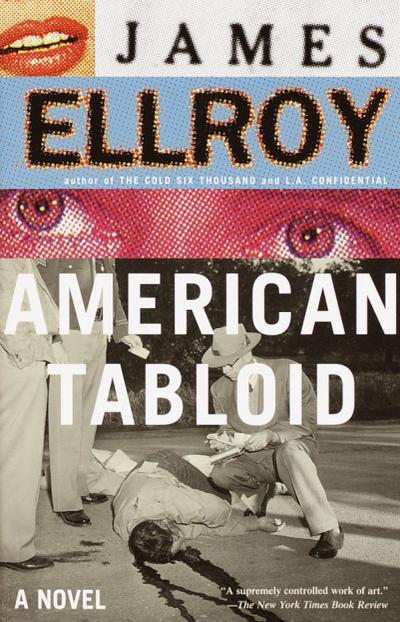
Where the CIA, the Mob, J. Edgar Hoover, Howard Hughes, Jimmy Hoffa, Cuban political exiles, and various loose cannons conspire in a covert anarchy…
Where the right drugs, the right amount of cash, the right murder, buys a moment of a man’s loyalty…
Where three renegade law-enforcement officers—a former L.A. cop and two FBI agents—are shaping events with the virulence of their greed and hatred, riding full-blast shotgun into history…
James Ellroy’s trademark, nothing-spared rendering of reality, blistering language, and relentless narrative pace are here in electrifying abundance, put to work in a novel as shocking and daring as anything he’s written: a secret history that zeroes in on a time still shrouded in secrets and blows it wide open.

One of the earliest serial-killer novels, and still one of the best, Killer on the Road is a character study, not the story of a manhunt.
Martin Michael Plunkett has a genius intellect, a pitiless soul of brushed steel, and a heart of blackest evil. His criminal tendencies nurtured in a Los Angeles gripped by Manson Gang hysteria, he drifts to San Francisco, where he indulges savage impulses that show him his true vocation as a murderer. So begins a decade of terror as he blazes a trail of carnage across the country, a saga pieced together in retrospect through Plunkett’s own confession and police reports, media coverage, and the writings of True Detective magazine. Both fascinating and grueling, the novel lays bare Plunkett’s internal workings—his mental brilliance and moral insanity—in a way and style that is only James Ellroy.
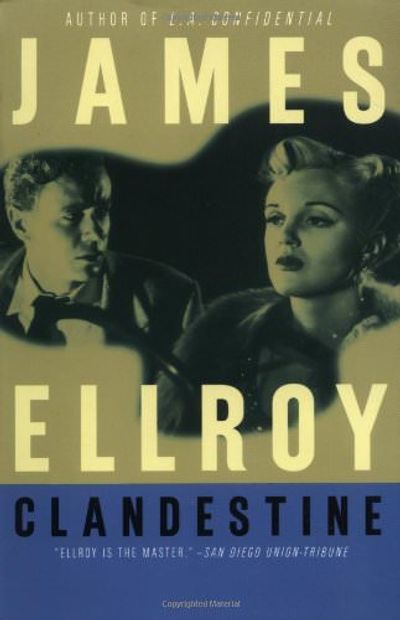
Fred Underhill is a young cop on the rise in Los Angeles in the early 1950s—a town blinded to its own grime by Hollywood glitter; a society nourished by newspaper lies that wants its heroes All-American and squeaky clean. A chance to lead on a possible serial killing is all it takes to fuel Underhill’s reckless ambition: it propels him into a dangerous alliance with certain mad and unstable elements of the law enforcement hierarchy. When the case implodes with disastrous consequences, it is Underhill who takes the fall. His life in ruins, his promising future wrecked—even his good and pure love for a crusading woman lawyer has been corrupted and may not survive. But even without the authority of a badge, Underhill knows that his only hope for redemption lies in following the investigation to its grim conclusion. And the hell to which he has been consigned for his sins is the perfect place to hunt for a killer who hungers but has no soul.
Journalism & Short Fiction
Crime Wave
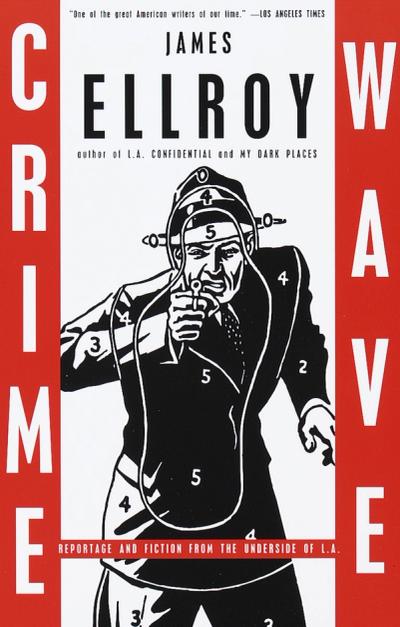
And no writer has mapped that field with greater savagery and savvy than James Ellroy. With this fever-hot collection of reportage and short fiction, he returns to his native habitat and portrays it as a smog-shrouded netherworld where “every third person is a peeper, prowler, pederast, or pimp.”
From the scandal sheets of the 1950s to this morning’s police blotter, Ellroy reopens true crimes and restores human dimensions to their victims. Sublimely, he resurrects the rag Hush-Hush magazine. And in a baroquely plotted novella of slaughter and corruption, he enlists the forgotten luminaries of a lost Hollywood. Shocking, mesmerizing, and written in prose as wounding as an ice pick, Crime Wave is Ellroy at his best.
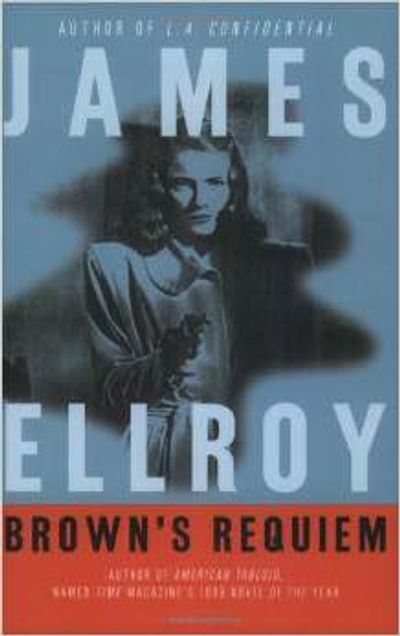
A less-than-spotless former cop with a drinking problem, a private-eye-cum-repo man with a taste for great music, he has been known to wallow in the grime beneath the Hollywood glitter. But Brown’s life is about to change, thanks to a racist psycho who flashes too much cash for a golf caddie and who walked away clean from a multiple murder rap. Reopening this case could be Fritz’s redemption—his welcome back to a moral world and his path to a pure and perfect love. But to get there, he must make it through a grim, lightless place where evil has no national borders; where lies beget lies and death begets death; where there’s little tolerance for Bach or Beethoven, and deadly arson is a lesser mortal sin. And where a PI’s unhealthy interest in the past can turn beautiful music into a funeral dirge.
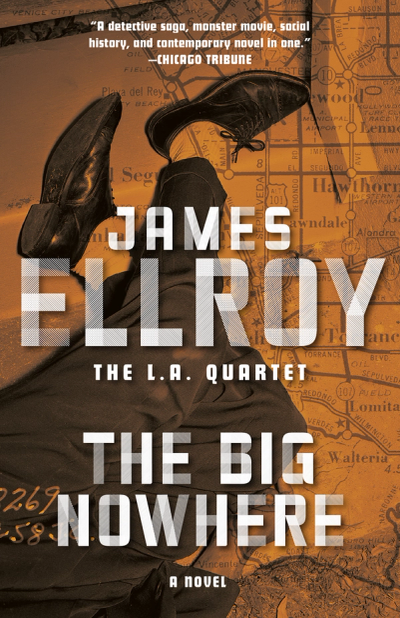
The characters: Danny Upshaw—a sheriff’s deputy stuck with a bunch of murders that nobody cares about. Mal Considine—DA’s Office brass, climbing on the Red Scare bandwagon to advance his own career. Buzz Meeks—bagman, ex-goon and pimp for Howard Hughes, a man who fights Communism for the money. All three have purchased tickets to a nightmare worse than their darkest dreams.
“Stark, brutal, tender and powerful…a remarkably vivid portrait of a remarkable time and place.” —Publisher’s Source
X-rated for violence.
Author of the bestselling Black Dahlia, James Ellroy pens another thriller—a noir epic of three men caught in a web of ambition, perversion and deceit during the 1950s in L.A. Each is on a collision course with the Communist scare and a string of brutal murders. Reissue.

A horrific mass murder invades the lives of victims and victimizers on both sides of the law—three cops treading quicksand in the middle. Detective Ed Exley wants glory. Haunted by his father’s success as a policeman, he will pay any price, break any law, to eclipse him. Detective Bud White watched his own father murder his mother. He is now bent on random vengeance, a time bomb with a badge.
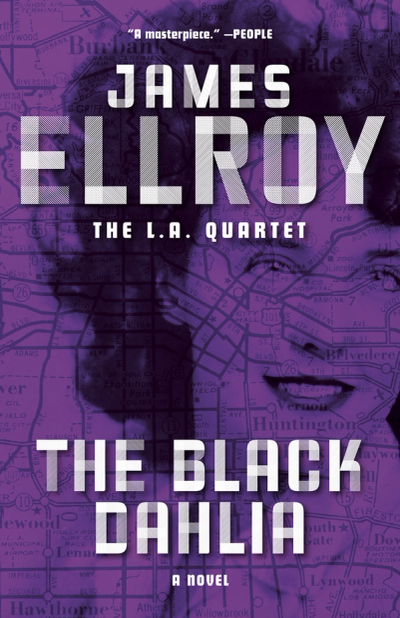
In this fictionalized treatment of a real case, Bucky Bleichert and Lee Blanchard, both L.A. cops obsessed with the Black Dahlia, journey through the seamy underside of Hollywood to the core of the dead girl’s twisted life.
“Passionate, violent, frustrating…imaginative and bizarre.” —Los Angeles Times.
“Building like a symphony, this is a wonderful, complicated, but accessible tale of ambition, insanity, passion and deceit.” —Publishers Weekly.
This fictionalized version of Hollywood’s most notorious murder case takes readers on a hellish journey through the movie capital and into a region of total madness.
Memoir
My Dark Places
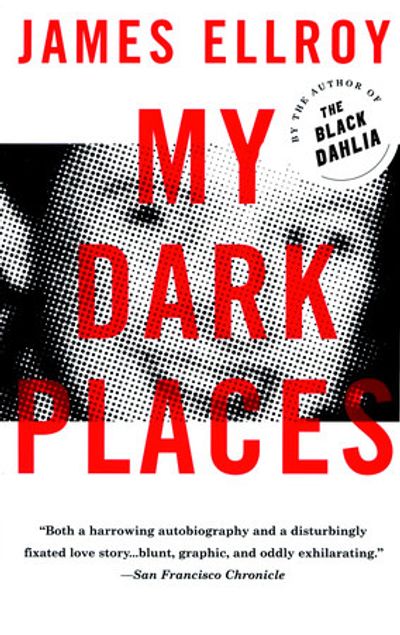
In 1958 Jean Ellroy was murdered, her body dumped on a roadway in a seedy L.A. suburb. Her killer was never found, and the police dismissed her as a casualty of a cheap Saturday night. James Ellroy was ten when his mother died, and he spent the next thirty-six years running from her ghost and attempting to exorcize it through crime fiction. In 1994, Ellroy quit running. He went back to L.A., to find out the truth about his mother–and himself.
In My Dark Places, our most uncompromising crime writer tells what happened when he teamed up with a brilliant homicide cop to investigate a murder that everyone else had forgotten–and reclaim the mother he had despised, desired, but never dared to love. What ensues is a epic of loss, fixation, and redemption, a memoir that is also a history of the American way of violence.